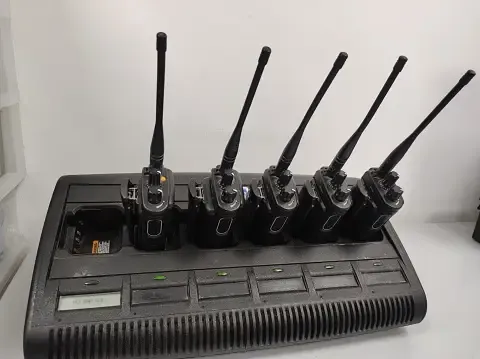
Send Inquiry
Do I Need to Obtain a Ham Radio License?
Ham radio licensing is the process through which individuals are authorized to operate amateur radio stations. This authorization is essential to ensure that operators comply with regulations set by national regulatory bodies.
Ensuring regulatory compliance is crucial in the realm of ham radio. It not only maintains order within the radio spectrum but also prevents interference with other radio users, including emergency services and commercial broadcasters.
Obtaining a ham radio license plays a vital role in ensuring efficient spectrum usage. By assigning specific frequencies to licensed operators, regulatory bodies can manage radio traffic effectively and minimize potential conflicts.
Reasons for Obtaining a Ham Radio License
Obtaining a ham radio license is not just a formality; it's a legal requirement for transmitting on amateur radio frequencies. Without a license, operating a ham radio station is against the law in most countries.
Ensuring safety and preventing interference is another crucial reason for obtaining a ham radio license. Licensed operators are trained to use radio equipment responsibly, minimizing the risk of disrupting critical communication channels, such as those used by emergency services.
Participation in emergency communications is a significant benefit of holding a ham radio license. During disasters or emergencies, amateur radio operators often play a vital role in providing communication support when other systems fail.
There are different types of ham radio licenses, each granting specific privileges and frequency allocations. Depending on their level of expertise and interest, individuals can choose from entry-level licenses to advanced licenses with broader privileges.
Types of Ham Radio Licenses and Their Features
When it comes to ham radio licenses, there are several levels to consider. These include Technician, General, and Extra licenses, each offering varying degrees of privileges and access to different frequency bands. Understanding the differences between these license levels is crucial for aspiring operators to determine which one aligns best with their goals and interests.
With each license level comes specific privileges, such as the ability to operate on certain frequency bands and transmit with higher power levels. Additionally, the scope of privileges may expand as operators progress to higher license levels, allowing for more extensive communication capabilities.
Comparing license systems across countries is also essential for individuals interested in ham radio. While the basic principles of licensing remain similar, variations in regulations and requirements may exist between different countries. Therefore, understanding these differences can help operators navigate the licensing process more effectively, especially if they plan to operate internationally.
Ham Radio Examinations
Ham radio examinations are a critical component of the licensing process and require thorough preparation. Exams typically cover a range of topics, including radio theory, operating procedures, and regulations specific to amateur radio.
The format of ham radio exams may vary depending on the country and regulatory authority. However, they often consist of multiple-choice questions designed to assess the candidate's knowledge and understanding of essential concepts related to amateur radio.
Over time, the criteria for ham radio examinations may evolve to reflect changes in technology and regulations. As a result, it's essential for aspiring operators to stay updated on any modifications to the exam syllabus and adjust their study approach accordingly.
Costs Associated with Obtaining a Ham Radio License
Understanding the costs associated with obtaining a ham radio license is essential for aspiring operators. While the actual license fees vary from country to country, additional expenses such as exam fees and equipment costs should also be considered.
In various countries, ham radio license fees may range from nominal to moderate, depending on the regulatory framework in place. Additionally, individuals may need to budget for exam fees charged by licensing authorities, as well as expenses related to purchasing or upgrading radio equipment.
When weighing the costs of obtaining a ham radio license, it's essential to consider the long-term benefits it offers. Beyond the initial investment, holding a ham radio license grants access to a vibrant community of enthusiasts, emergency communication networks, and opportunities for personal growth and development.
Exploring Alternatives to Obtaining a Ham Radio License
For those interested in ham radio but not ready to obtain a license, there are alternative ways to engage with the hobby. One option is to listen to ham radio broadcasts without transmitting, allowing individuals to experience the excitement of amateur radio without the commitment of licensure.Participating in club-sponsored activities is another valuable avenue . Many amateur radio clubs organize events, contests, and meetings where enthusiasts can learn from experienced operators and engage with like-minded individuals.
However, it's essential to understand the limitations and legal implications of operating ham radio equipment without a license. While listening to broadcasts is generally permitted, transmitting without authorization is illegal in most jurisdictions and can result in hefty fines or penalties. Therefore, aspiring operators should carefully consider their options and adhere to relevant regulations.
Conclusion
Aspiring operators are encouraged to explore the diverse opportunities offered by ham radio and engage with experienced enthusiasts to enhance their understanding and proficiency. Whether for personal enjoyment, emergency preparedness, or technical innovation, the world of ham radio holds boundless possibilities for those willing to pursue licensure and immerse themselves in this dynamic and vibrant community.

